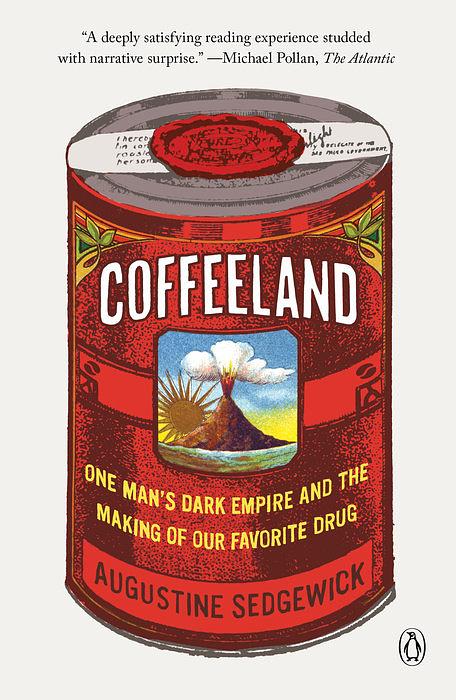內容簡介
內容簡介 從十六世紀歐洲首次記載咖啡為始,不過四百年,咖啡席捲了歐陸與美洲,成為人們的日常飲品。資本家的銳利眼光,讓他們走入未開發的中南美洲,用利潤與當地政府交易,打著「自由主義」的大旗,一舉改變中南美洲的地景。當咖啡豆在中南美洲種下,帝國主義與奴隸制度隨即而來,資本家用「饑餓」綁架了龐大數量的印第安人,用「工廠制度」包裝讓人嗤之以鼻的奴隸制度,而最後,用令人驚豔的包裝與言語,遮蓋了咖啡背後的血腥。在拉丁美洲「咖啡國王」詹姆斯.希爾,建立了當地最密集、最盛行的咖啡帝國。咖啡豆從咖啡莊園中出產,隨即送到美國,經過舊金山的烘焙工廠、再到各個城市的超商、廚房,成為消費者手中的罐裝飲料。咖啡成為連結全世界的重要商品,它打破了人體運作與國際政治的既定思維,扭轉了全球貿易的既定形式:當咖啡不再只是飲品時,對於咖啡飲用者而言又代表了什麼?從十八世紀工業革命始,全球貿易天翻地覆的改變,新的連接卻意味著更深一層的分歧,到一九五○年時,工業化國家的人均收入,是未開發國家的五倍!當世界貧富的劃分與咖啡飲用者和咖啡工人的劃分一致、當咖啡成為全球資本主義歷史上最重要的商品,咖啡不僅「連接了世界」,更在大西洋劃出了貧窮與富有、獨裁與自由的巨大鴻溝。當咖啡串起了世界、隔閡了窮人跟富人,讓人不禁想問:▶當資本家與生產主義結合,咖啡處理廠中的工人與機器有無差別?▶當咖啡莊園等同於饑餓,國家該保護的是工人還是咖啡?追溯百年來咖啡種植的發展,呈現一齣全面的「咖啡上癮史」哈佛大學歷史學博士奧古斯丁.塞奇威克從消費與生產的角度,講述了咖啡與資本主義之間盤根錯節的故事。一覽咖啡如何登上歷史舞台、如何被創造與革新、如何導致種植園的饑餓、如何引爆一波又一波的紅色起義,以及最終,影響我們如何看待手中的咖啡。本中文書介出自《咖啡帝國: 勞動、剝削與資本主義, 一部全球貿易下的咖啡上癮史》臺灣商務印書館股份有限公司出版A New York Times Book Review Editors’ Choice“Extremely wide-ranging and well researched . . . In a tradition of protest literature rooted more in William Blake than in Marx.” —Adam Gopnik, The New Yorker The epic story of how coffee connected and divided the modern world Coffee is an indispensable part of daily life for billions of people around the world. But few coffee drinkers know this story. It centers on the volcanic highlands of El Salvador, where James Hill, born in the slums of Manchester, England, founded one of the world’s great coffee dynasties at the turn of the twentieth century. Adapting the innovations of the Industrial Revolution to plantation agriculture, Hill helped turn El Salvador into perhaps the most intensive monoculture in modern history—a place of extraordinary productivity, inequality, and violence. In the process, both El Salvador and the United States earned the nickname “Coffeeland,” but for starkly different reasons, and with consequences that reach into the present.Provoking a reconsideration of what it means to be connected to faraway people and places, Coffeeland tells the hidden and surprising story of one of the most valuable commodities in the history of global capitalism."
作者介紹
作者介紹 Augustine Sedgewick earned his doctorate at Harvard University and teaches at the City University of New York. His research on the global history of food, work, and capitalism has received fellowships from the American Council of Learned Societies, the Andrew W. Mellon Foundation, and the Project on Justice, Welfare, and Economics at Harvard, and has been published in History of the Present, International Labor and Working-Class History, and Labor. Originally from Maine, Sedgewick lives in New York City.
